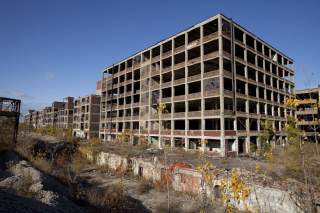Don't Panic about America's Cultural Decline
We’re always assuming our civilization is on the verge of collapse.
American culture has long been an aspirational one, so fear of decline is always around the corner. Gentility, or civility for that matter, did not die in the Jacksonian era. Neither did the threat of attack from the primitives, which is seen to recur at least once per generation. What few Americans have admitted, however, is that the threat resides in our most civilized quarters; its malefactors exhibit the same tendency to excess, no matter the color of the trappings.
Huxley, for all we know, was playing a joke on his readers by suggesting that society resign itself to such vulgarity, including his own. It needn’t do this, of course. But what other choice does it have?
The Dutch biologist and thinker, Midas Dekkers, has offered one in a more recent book, The Way of All Flesh. Celebrate decay and, therefore, decline. It is only natural, so why bemoan it? He is correct to insist that “life is a way of dying slowly.” He is also persuasive. For decay may be putrid, even ugly to some people, but is dense, intricate and, deeply, powerfully, alive. Decadent eras can be exciting. Even in the United States, whose civilization is known to prize youth, rebirth, reinvention—all contrary to decadence—such eras—the 1920s, for example, or the abovementioned 1960s and 1970s—are known for artistic plenty, especially in popular culture.
So, do not conflate the vulgar with the primitive; don’t fight decadence and decay; embrace and relish them. The surviving Puritans among us may well object; but even their culture won’t last forever in America.
Kenneth Weisbrode is a writer and historian. His latest book is The Year of Indecision, 1946.
Image: The abandoned Packard Automotive Plant in Detroit, Michigan. Wikimedia Commons/Albert Duce.

